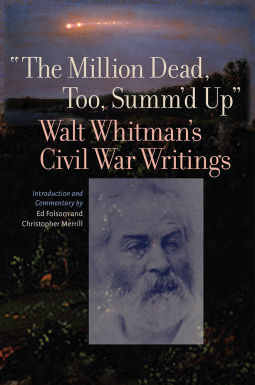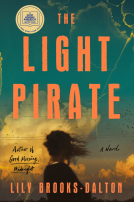
"The Million Dead, Too, Summ'd Up"
Walt Whitman's Civil War Writings
by Walt Whitman
This title was previously available on NetGalley and is now archived.
Send NetGalley books directly to your Kindle or Kindle app
1
To read on a Kindle or Kindle app, please add kindle@netgalley.com as an approved email address to receive files in your Amazon account. Click here for step-by-step instructions.
2
Also find your Kindle email address within your Amazon account, and enter it here.
Pub Date Mar 02 2021 | Archive Date Mar 01 2021
University of Iowa Press | University Of Iowa Press
Talking about this book? Use #TheMillionDeadTooSummdUp #NetGalley. More hashtag tips!
Description
The real democratic reader, Whitman said, “must himself or herself construct indeed the poem, argument, history, metaphysical essay—the text furnishing the hints, the clue, the start or frame-work,” because what is needed for democracy to flourish is “a nation of supple and athletic minds.” Folsom and Merrill model this kind of active reading and encourage both seasoned and new readers of Whitman’s war writings to enter into the challenging and exhilarating mode of talking back to Whitman, arguing with him, and learning from him.
Available Editions
| EDITION | Other Format |
| ISBN | 9781609387464 |
| PRICE | $35.00 (USD) |
Featured Reviews
 Willy M, Reviewer
Willy M, Reviewer
I don't know which I liked more, the actual words of Whitman or the commentary by Folsom and Merill. In both you may find deficiencies and elements you wish were not there, but its hard not to find this book entertaining and enlightening. I highly recommend it.
What could possibly be the deficiencies, if I highly recommend it? Well, to put the matter succinctly, the whole project of writer and commentator borders on the personal. Whitman's experience of the war was a very deeply engaging experience. He was in the thick of the war seeing injuries in the hospitals and knowing personally so many combatants. The million dead is not an exaggeration, and Whitman is knee deep in the blood of a land killing itself in barbarism and heroism. He must try to make sense of the grandeur and senselessness. He fails, a lot. But that's part of the glory of Whitman, he keeps going and battles through to give us a clarity and comprehensiveness of the conflict that you will not walk away from unaffected.
Similarly, the commentators draw examples from what some may consider a narrow vantage point of today's conflicts and their own experiences. But that is part of the nature of Whitman, he invokes a personal reaction. That you might see the work differently than the commentators does not diminish the power and truth of their comments. All in all, its well done, and for the work of Whitman and his commentators, there must always remain an incompleteness. What is needed is the reader to engage themselves. If anything, Whitman says to the reader that they matter. You add something to Whitman, you engage his words as if it were a conversation with a man that has something important to say, and something you have to hear.





